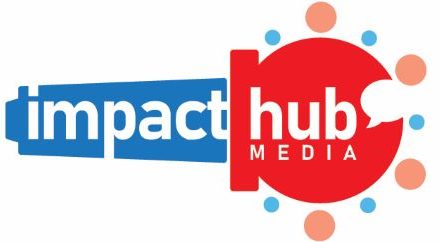CNN Marketplace Africa to air biggest global brands in Africa

During January, ‘CNN ‘Marketplace Africa’ is airing a series of episodes featuring four of the biggest global brands in Africa.
Each week, the programme focuses on operations of a brand on the ground, showing how it deals with infrastructural and logistical challenges that exist on the continent, and how it positions its brand to appeal to African consumers.
Considered one of the world’s most valuable brands, Coca-Cola is available in every country in the world except Cuba and North Korea. In Africa, Coca-Cola products are sold in about 900,000 locations across every country. The company has established a distribution system that allows them to make their beverages accessible even in hard-to-reach areas.
‘Marketplace Africa’ follows Coca-Cola’s head of Eurasia and Africa, Nathan Kaalumbu, from his base in Turkey to Nairobi, to understand how the operation works.
Travelling around Africa, visiting Coca-Cola vendors and distributors, Kalumbu tries to figure out what works for the company and what doesn’t.
The approach in each city may differ, but the strategy is the same: a Coke product should always be within reach. The familiar red and white logo is widely visible, even in hard-to-reach areas. This is made possible thanks to the 3,000 small Coca-Cola distribution centres dotted across the continent.
Kalumbu explains to ‘Marketplace Africa’: “These micro distribution centres are normally run by individuals who live in the community, they employ local people and they distribute to local retailers. It is a very good system that allows us to be able to reach consumers that would otherwise be difficult in reaching because of infrastructural challenges.”
Transportation has always been a challenge in reaching consumers in Africa. Narrow, muddy, or isolated roads made distribution impossible or inefficient for large delivery trucks. But local vendors have adapted by organising alternative methods of transport.
Kalumbu tells ‘Marketplace Africa’: “What you find in most of these micro distribution centres is that the distribution – especially when we began the program in 2000 – was largely driven through pushcarts, it was largely driven through bicycles.”
The methods of distributing Coca-Cola continue to develop, as Kalumbu tells the programme: “What you are seeing today is that the model is evolving as Africa is becoming more and more affluent and as infrastructure is improving in local communities we are also beginning to evolve the model. ”
One distributor, Hilda Macharia, explains to ‘Marketplace Africa’ how she has benefited from the evolution: “I started with 6,000 cases five years ago. This month I’m doing 32,000 cases. The pushcarts could no longer sustain the demand. The mechanisation has really helped because I’m able to get to the far end of my market in time.”
Coca-Cola produces more than 100 different Coca-Cola products in Africa, many of which are specifically crated to appeal to local tastes. In East Africa, where there is the sharp ginger-flavoured stony, or the bitter lemon Krest, for example.
Also on the programme, ‘Marketplace Africa’ host Zain Asher meets Coca-Cola’s CEO, Muhtar Kent, at the company’s global headquarters in Atlanta, United States, to discuss Coke’s growth in Africa.
Kent is excited about growth on the continent. He explains to Asher: “The continent of Africa, the youngest continent in the world, is a great place for growth. The continent is growing, urbanisation is growing, GDP is growing, and the rapid induction into middle class with Africans all over the nation is growing.”
In the next ten years, Kent believes that the rate of growth in Africa will be higher than that of Western markets.
He tells ‘Marketplace Africa’ that Africa will continue to become a larger part of the company’s revenue: “We’re very excited, and that’s why we’ve more than tripled our investment compared with last decade. Last decade we invested about 5.5 billion dollars in total in Africa. This decade that we’re in now, we’re earmarked to invest about 17 billion.”
Kent explains to ‘Marketplace Africa’ where this investment goes: “That money goes into plants and infrastructure capacity, distribution capacity, and investments in outlets… part of it also goes into insuring that we play an important, commensurate role in creating stronger communities wherever we operate in the whole continent of Africa.”
With increased growth comes increased competition. This includes Coca-Cola’s traditional rival Pepsi, who are increasing operations in Nigeria, Ghana and Kenya. This is not a concern for Kent, however.
He tells ‘Marketplace Africa’ host Asher: “We think that competition is a benefit to everyone. It makes us operate better, it makes us it’s a better environment for the company, it’s a better environment for the consumer, and so we welcome competition.”

